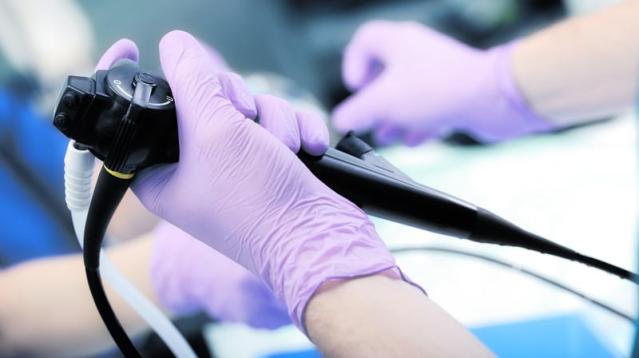A new, non-surgical approach to weight loss is showing promise in early trials, according to a recent study. The procedure, called endoscopic mucosal ablation, involves burning a portion of the mucus-filled lining in the stomach. Preliminary results indicate that this technique could lead to weight loss and a reduction in hunger.
The process begins with patients consuming a protective fluid. Then, doctors insert an endoscope through the esophagus into the stomach’s uppermost region, known as the gastric fundus. By ablating, or burning, the inner lining of this area, which produces a hormone called ghrelin, the aim is to decrease hunger. Ghrelin is released when the stomach is empty, triggering appetite, and its levels drop as we eat. By reducing the ghrelin-producing cells in the fundus, the researchers hope to curb hunger and promote weight loss.
The study, presented at Digestive Disease Week, involved ten women with obesity. On average, they lost 7.7% of their body weight and saw a significant drop in fasting ghrelin levels—over 40%. Additionally, self-reported hunger dropped by about a third, while the stomach’s capacity for food and drink decreased by 42%.
Despite these encouraging results, the study has limitations. The sample size was small, and the findings have yet to undergo peer review. Plus, the weight loss outcomes are less substantial compared to certain new obesity treatments like semaglutide and tirzepatide, which have been found to lead to 15% to over 20% weight loss in clinical trials.
However, the researchers believe endoscopic mucosal ablation could be a useful addition to the range of obesity treatments. Currently, outside of bariatric surgery, there are no other treatments that specifically target ghrelin. If this technique can offer a safe and sustainable reduction in ghrelin levels, it could serve as a one-time, less invasive option for those who either don’t qualify for or prefer to avoid anti-obesity medications or bariatric surgery.
Dr. Christopher McGowan, a gastroenterologist and medical director at True You Weight Loss in North Carolina, explained that this outpatient procedure could be an alternative for patients who can’t or don’t want to take anti-obesity medications or undergo surgery.
The research team plans to conduct larger studies to further explore the potential of this technique, tracking participants’ weight loss and hunger levels over more extended periods. “This is just the beginning,” McGowan noted, adding that the initial findings confirm that endoscopic mucosal ablation can indeed reduce hunger and ghrelin levels, offering hope for new pathways in obesity treatment.















































